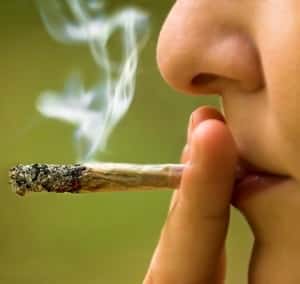
Q. I was born in 1933 and had asthma when I was in my teens. I inhaled the smoke from Rexall Asthma Powder to treat it. I would put about a teaspoonful of the powder on the tin cover of the asthma powder can and light it with a match. I then inhaled the smoke and it did work to stop an attack.
If I smell marijuana now it reminds me of the smell of the smoke from the asthma powder that I used. Knowing now that there probably was marijuana in the asthma powder must mean that marijuana is good for something.
A. During the 19th century, doctors sometimes prescribed cannabis (marijuana) or “Indian hemp” to treat migraines, menstrual cramps and asthma. It was available as either powder to be burned or “cigarettes.” In both cases the smoke was inhaled.
A study in the New England Journal of Medicine (Aug. 16, 1973) revealed that both oral and smoked marijuana opened airways. This of course runs counter to everything we have been taught about the dangers of smoke to the lungs. Nevertheless, here is what the researchers found:
“Our finding of a significant increase in specific airway conductance after smoked marijuana substantiates the observations of Vachon, et al. and suggests that one or more of the volatilized cannabinoids of smoked marijuana results in dilation of the airways…
“In summary, our results suggest that, in healthy young men, both smoked marijuana and oral delta9-THC (tetrahydrocannabinol] cause significant dilatation of the airways lasting as long as 60 minutes and six hours, respectively. The dilatation after smoked marijuana is not due to the deep-inhalation smoking technic, contrasts sharply with the constriction that follows cigarette smoking, and is greater in magnitude than that after inhalation of therapeutic doses of isoproterenol. A dose-response relation was suggested for smoked marijuana and demonstrated for oral THC.”
What About Rexall Asthma Powder?
The Rexall Asthma Powder that you remember from the early 20th century did not actually contain marijuana. Instead, the ingredients were stramonium, belladonna and potassium nitrate (saltpeter). The herbs in this powder were from the nightshade family. Side effects included dry mouth, rapid heartbeat, difficult urination and, in high doses, hallucinations.
So, although you may have thought you were inhaling marijuana, the herbs in Rexall Asthma Powder were actually different, though the smell might have been a bit similar.
Anticholinergic Drugs for Asthma
The herbs you were inhaling so long ago had powerful anticholinergic activity. That means they interfered with the action of the neurotransmitter acetylcholine. Interestingly, there are now modern anticholinergic inhalers. Two are ipratropium (Atrovent) and tiotropium (Spiriva). Such drugs enhance the lung dilating effect of standard bronchodilators. Not surprisingly side effects include dry mouth, dry nose and throat, nosebleeds, blurred vision, glaucoma, palpitations, constipation, reflux, dizziness, urinary tract infections and headache.
The Bottom Line:
Although you were not inhaling marijuana, you were getting smoke from herbs that actually did help open airways. Perhaps researchers will follow up on the New England Journal of Medicine research to verify the effectiveness of marijuana for asthma. Perhaps an oral formulation might turn out to be an effective approach for hard-to-treat asthma. The “vaping” devices now used to deliver both nicotine and THC may reduce the irritating effects of marijuana smoke. We definitely need better research before anyone starts relying on marijuana to ease asthma symptoms, though.
Share your own experience with asthma below in the comment section and please vote on this article at the top of the page.

